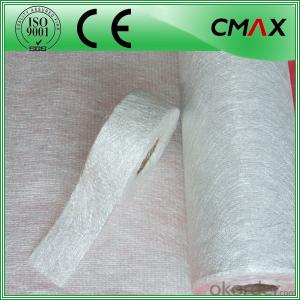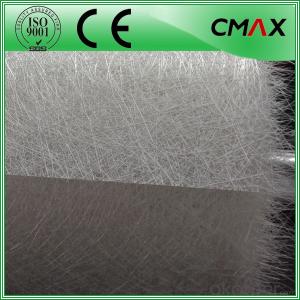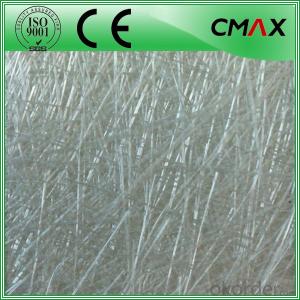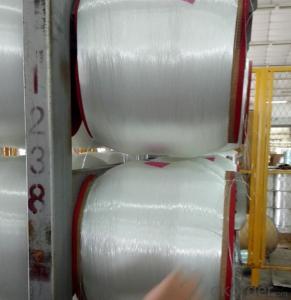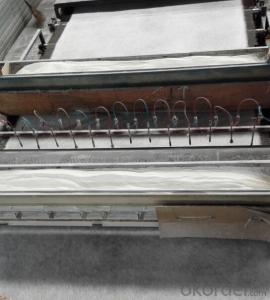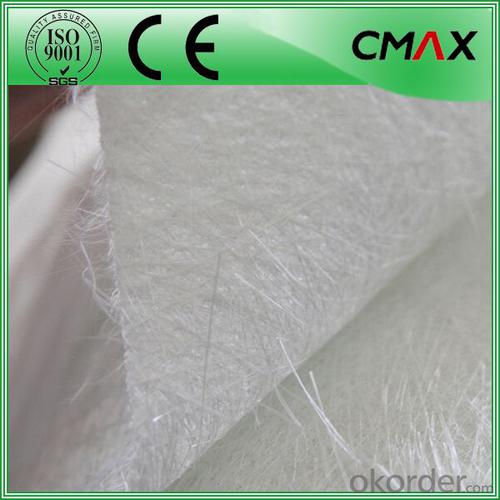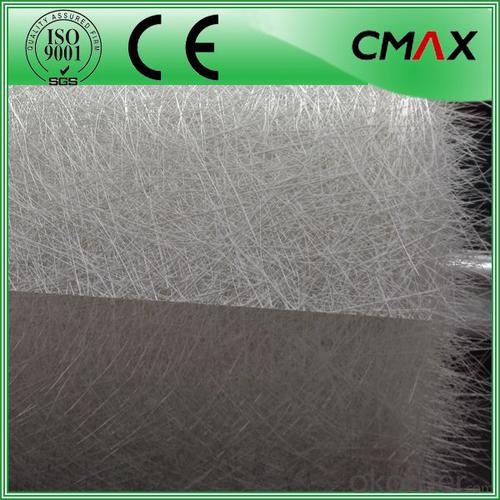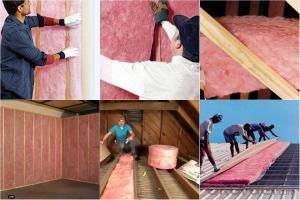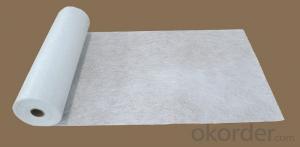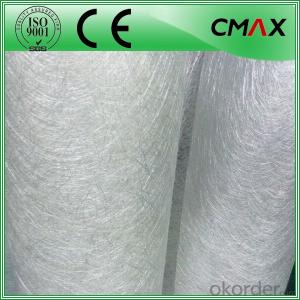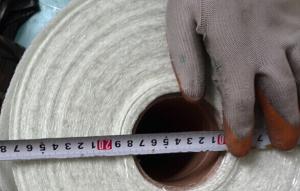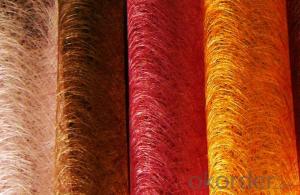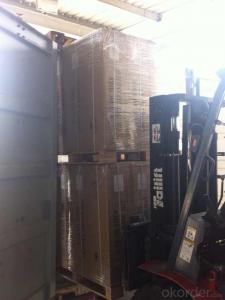Fiberglass Mat Tissue Chopped Strand Mat Fiberglass Mat Jushi Strand Mat
- Loading Port:
- China main port
- Payment Terms:
- TT OR LC
- Min Order Qty:
- 1000 m.t
- Supply Capability:
- 1000000 m.t/month
OKorder Service Pledge
OKorder Financial Service
You Might Also Like
Chopped Strand Mat ,Fiberglass Mat Jushi Strand Mat
Introduction:
Fiberglass chopped strand mat is a non-woven E-or C-glassfiber mat, product manufactured by spreading continuous filament roving of 50mm in length randomly and uniformly in combination with polyester binder in powder form (or other binder in emulsion from). This product is characterized by good combination of resin, easy operation, good wet strength retention, good laminate transparency and low cost. It is suitable for the applications of hand lay-up FRP moldings, such as various sheets and panels, boat hulls, bath tubs, cooling towers, corrosion resistant, vehicles etc.
Function:
Fiberglass chopped strand mat is chopped using the "E" chopped glass and emulsion adhesive bond. It is suitable for hand lay and can enhance the unsaturaed ployester resins.
Product Features:
Consistent thickness and stiffness;
Rapid impregnating and good compatibility with resin;
Superior wet through with less air trap;
Good mechanical properties and high strength of parts.
Superior acid corrosion resistance
Technical Data:
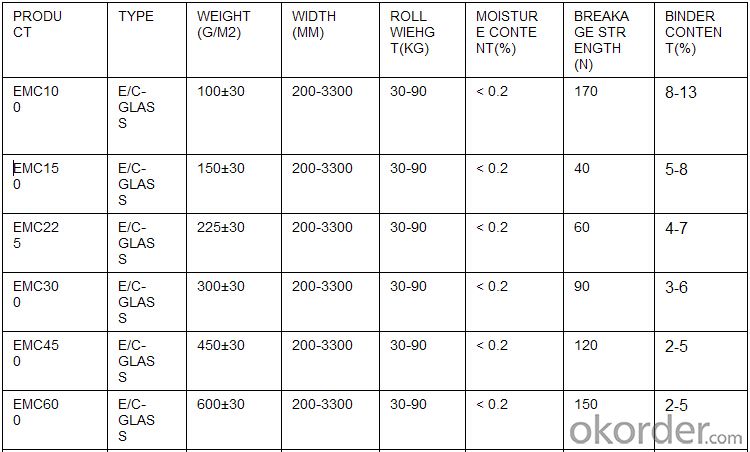
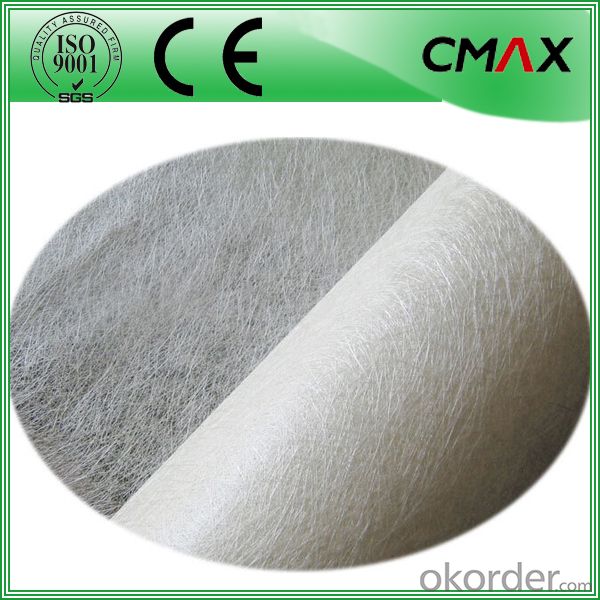
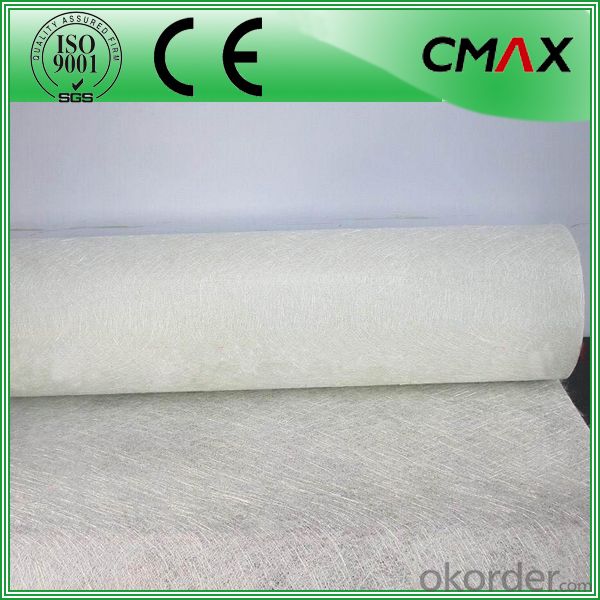
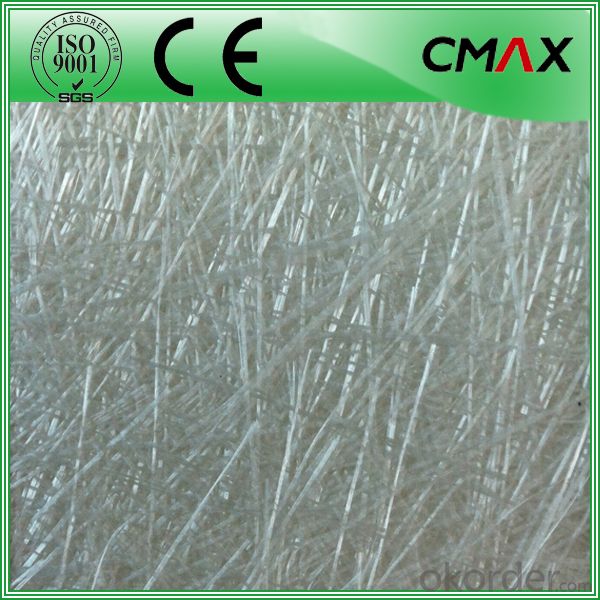
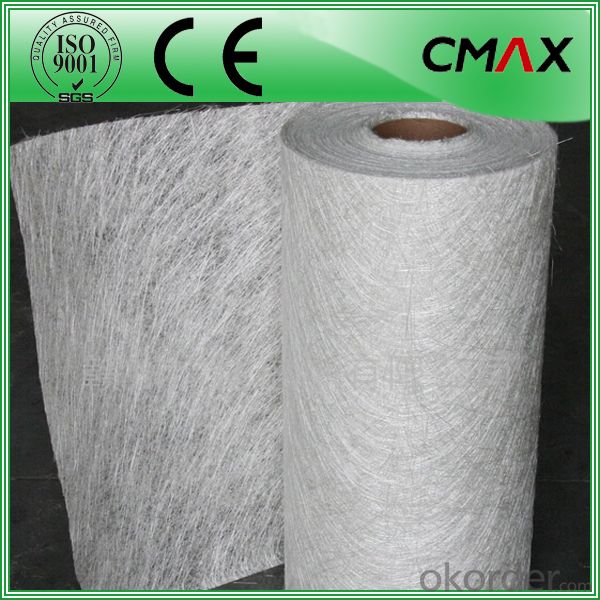
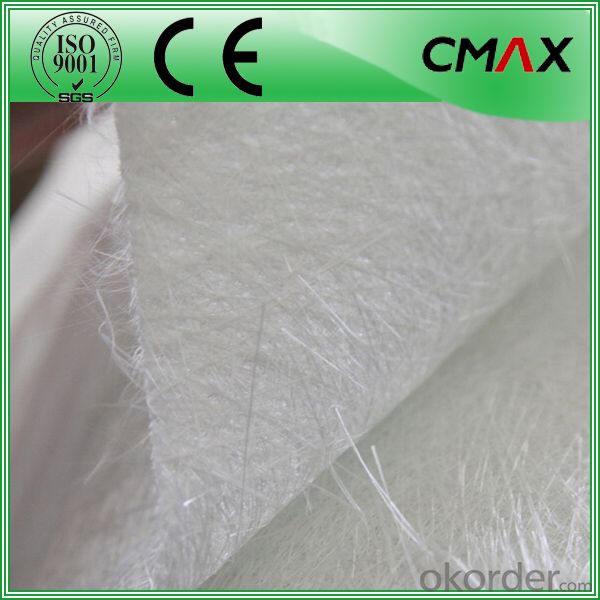
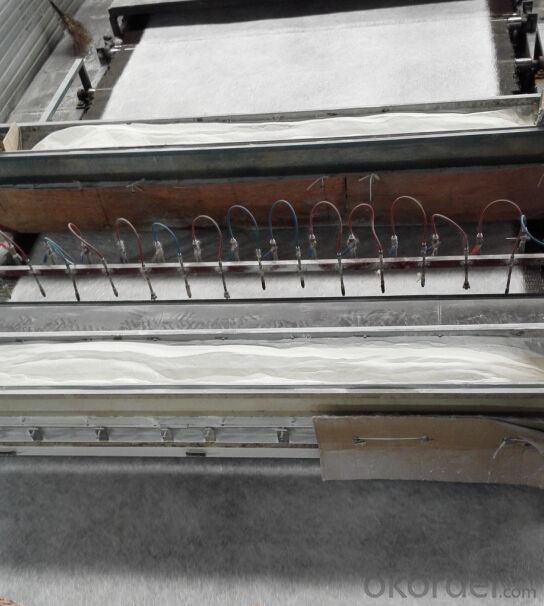
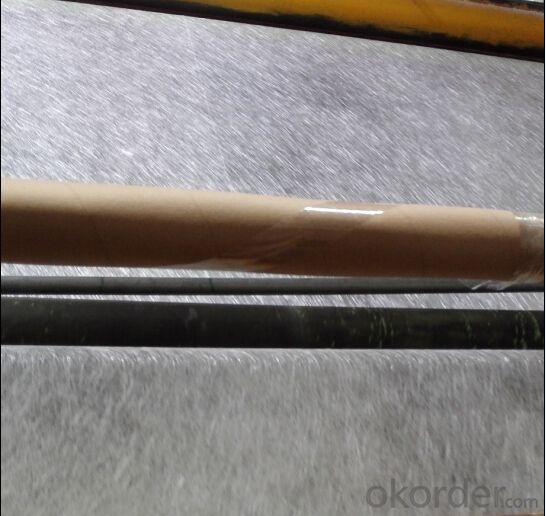
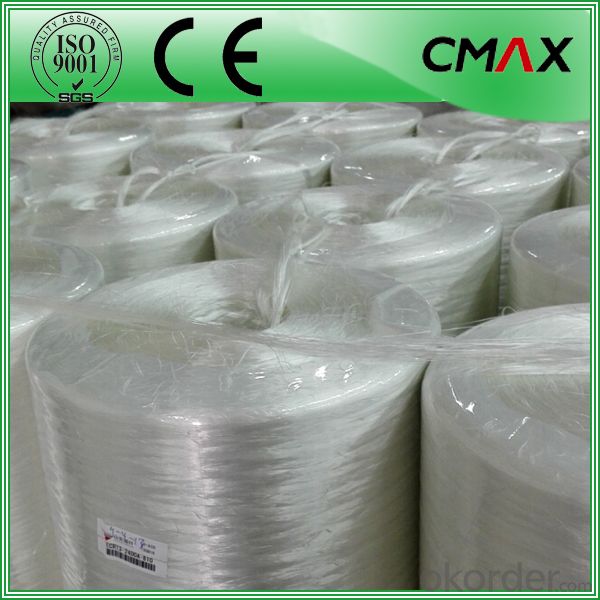
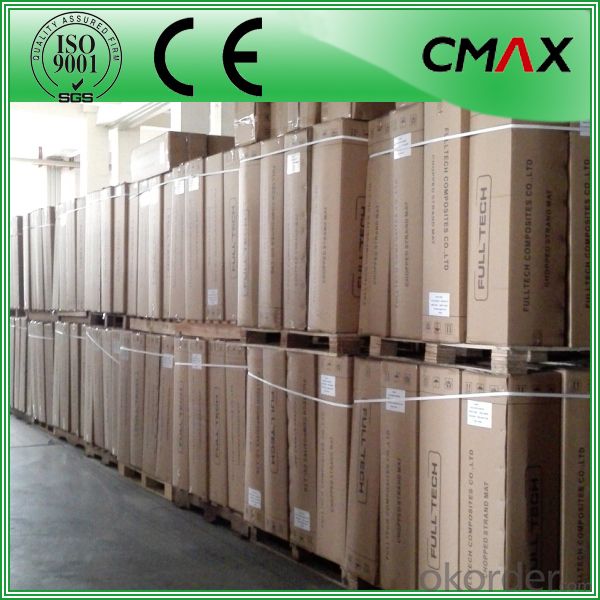
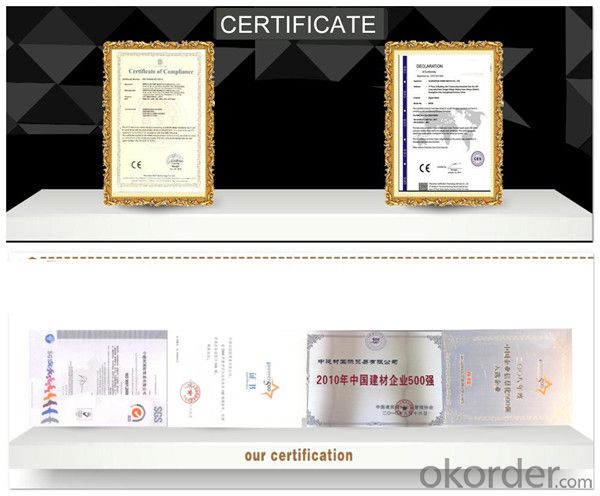
FAQ:
Is sample available ?
Yes, we provide the free samples, but customers themselves need pay the shipping fee
What's your MOQ?
Our MOQ is one 1*20' full container loading
How do you pack the fiberglass
(1) First, the mat is in roll packed in White PE fIlm.
(2) Then the rolls packed in the carton
4.Which knid of payment terms can you accept?
We can accept 30% prepayment, 70% payment before shippment. LC is also accepted
- Q: Can fiberglass mat tissue be used for repairing fiberglass structures?
- Fiberglass structures can be repaired using fiberglass mat tissue. This material is widely used in the construction and repair of fiberglass structures because of its versatility. Its purpose is to strengthen and reinforce damaged areas of the structure. To ensure a durable repair, the mat tissue is usually applied with resin, which bonds the fibers together. It is particularly effective for fixing cracks, holes, and other damages on fiberglass surfaces. In summary, fiberglass mat tissue is an outstanding option for repairing fiberglass structures due to its strength, flexibility, and ability to adapt to different shapes and sizes.
- Q: What is the tear resistance of fiberglass mat tissue?
- The tear resistance of fiberglass mat tissue is typically high, making it a strong and durable material that is resistant to tearing.
- Q: How does the thickness of fiberglass mat tissue affect its flexibility?
- The thickness of fiberglass mat tissue typically has an inverse relationship with its flexibility. As the thickness of the mat tissue increases, its flexibility decreases. Thicker mat tissues are stiffer and less pliable, making them less flexible compared to thinner ones.
- Q: How does the density of fiberglass mat tissue affect its performance?
- The performance of fiberglass mat tissue is significantly impacted by its density. Fiberglass mat tissue finds its use in various applications such as insulation, construction materials, and composite materials. The strength, durability, flexibility, and thermal insulation properties of the fiberglass mat tissue are determined by its density. A higher density fiberglass mat tissue generally offers improved strength and durability. This is because a higher density means that more fiberglass strands are densely packed together, resulting in a denser and stronger material. It can withstand higher loads and impacts, making it suitable for applications that require structural integrity, like the construction or automotive industries. Furthermore, the flexibility of fiberglass mat tissue is also influenced by its density. A lower density fiberglass mat tissue tends to be more pliable and easier to shape. It can be molded into intricate shapes and contours, making it suitable for applications where flexibility is crucial, such as boat manufacturing or automotive body parts. The density of fiberglass mat tissue also affects its thermal insulation properties. Higher density fiberglass mat tissue provides better insulation against heat transfer. It effectively prevents the transfer of heat through conduction, making it ideal for insulation purposes in buildings or piping systems. However, it is important to consider that the choice of fiberglass mat tissue density should be based on the specific requirements of the application. While higher density may offer better strength and durability, it also increases the weight and cost of the material. Therefore, a balance needs to be achieved between the desired performance characteristics and the practicality of the specific application.
- Q: Is fiberglass mat tissue suitable for automotive body panel repairs?
- Yes, fiberglass mat tissue is suitable for automotive body panel repairs. It is a commonly used material in the automotive industry due to its strength, durability, and ability to conform to different shapes. The fiberglass mat tissue provides reinforcement and helps to restore the structural integrity of the body panel, making it an effective choice for repairing damages.
- Q: Does fiberglass mat tissue require any special surface bonding agents?
- Special surface bonding agents are necessary for fiberglass mat tissue. It is commonly used as a reinforcement material in industries like construction, automotive, and aerospace. To achieve a strong bond between the fiberglass mat tissue and the substrate, a suitable bonding agent or adhesive is needed. The bonding agent plays a crucial role in creating a durable and robust bond between the fiberglass mat tissue and the applied surface. It enhances the overall strength, integrity, and performance of the composite material. Additionally, it prevents delamination or separation of the fiberglass mat tissue from the substrate. The type of bonding agent required may vary depending on the specific application and the substrate's properties. Typically, epoxy-based bonding agents are widely used for bonding fiberglass mat tissue due to their excellent bonding strength, chemical resistance, and durability. Before applying the bonding agent, it is essential to thoroughly clean the surface and remove any contaminants that may affect adhesion. The bonding agent can then be applied using appropriate techniques such as brushing, spraying, or rolling. In conclusion, special surface bonding agents are necessary for fiberglass mat tissue to ensure proper adhesion and enhance the performance of the composite material. The choice of bonding agent depends on the specific application and substrate properties. Adequate surface preparation is also crucial for achieving a strong and durable bond.
- Q: Does fiberglass mat tissue provide good thermal conductivity?
- No, fiberglass mat tissue does not provide good thermal conductivity. Fiberglass is known for its insulating properties, meaning it is a poor conductor of heat. It has a low thermal conductivity, which means it does not effectively transfer heat. This makes fiberglass mat tissue a suitable material for insulating applications where heat transfer needs to be minimized, such as in building insulation or in the manufacturing of heat-resistant clothing.
- Q: Can fiberglass mat tissue be used for making electrical enclosures?
- No, fiberglass mat tissue cannot be used for making electrical enclosures. Electrical enclosures require materials that have high electrical insulation properties, such as non-conductive plastics or metals, to ensure safety and prevent electrical hazards.
- Q: Is fiberglass mat tissue resistant to chemicals?
- Yes, fiberglass mat tissue is generally resistant to chemicals. The composition of fiberglass mat tissue, which consists of fine glass fibers bonded together with a resin, provides it with excellent chemical resistance properties. This resistance allows the fiberglass mat tissue to withstand exposure to a wide range of chemicals without deteriorating or losing its structural integrity. However, it is important to note that the specific chemical resistance of fiberglass mat tissue may vary depending on the type and concentration of the chemical it comes into contact with. Therefore, it is always advisable to consult the manufacturer's guidelines or conduct appropriate testing to ensure compatibility with specific chemicals.
- Q: How does fiberglass mat tissue contribute to the strength and durability of composite materials?
- Fiberglass mat tissue enhances the strength and durability of composite materials by providing reinforcement and structural integrity. The mat tissue consists of randomly arranged fibers that are bonded together, creating a strong and flexible matrix. This matrix acts as a support system, distributing stress and load across the material, thereby preventing cracks and fractures. Additionally, the fiberglass mat tissue acts as a barrier against moisture and other environmental factors, protecting the composite material from degradation and ensuring long-lasting performance.
Send your message to us
Fiberglass Mat Tissue Chopped Strand Mat Fiberglass Mat Jushi Strand Mat
- Loading Port:
- China main port
- Payment Terms:
- TT OR LC
- Min Order Qty:
- 1000 m.t
- Supply Capability:
- 1000000 m.t/month
OKorder Service Pledge
OKorder Financial Service
Similar products
Hot products
Hot Searches
Related keywords

